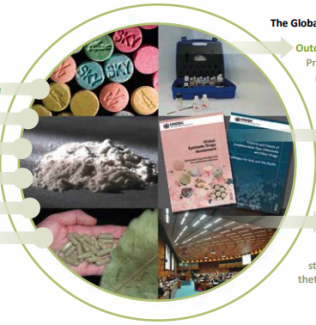The Global SMART Programme — A Strategic Response to the Synthetic Drug Problem, United Nations, New York

The global market for synthetic drugs has grown rapidly in recent years, with amphetamine-type stimulants (ATS) and new psychoactive substances (NPS) becoming a significant concern worldwide. ATS, which include amphetamine, methamphetamine and ecstasy-type substances, are now the second most widely used drugs after cannabis. Meanwhile, NPS such as synthetic cannabinoids, cathinones and phenethylamines continue to emerge in large numbers, often outpacing substances under international control, and pose serious health risks across a wide geographical spread.
In response to this growing challenge, the United Nations Office on Drugs and Crime (UNODC) launched the Global Synthetics Monitoring: Analyses, Reporting and Trends (SMART) Programme in 2008. The initiative supports targeted Member States by strengthening laboratory, law enforcement and research capacities, enabling countries to generate and use reliable information to design evidence-based policies and interventions.
Since its inception, the Global SMART Programme has been instrumental in identifying and monitoring NPS trends, with a focus on priority regions such as South-East Asia and Latin America. Its efforts have helped raise awareness of the dangers of synthetic drugs and promote a more coordinated, informed global response to this complex and evolving problem.
